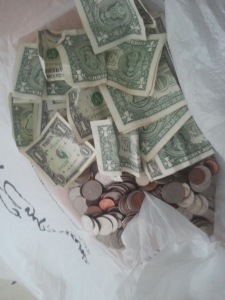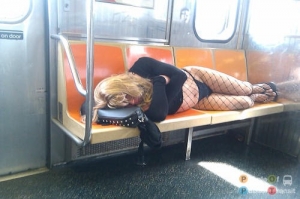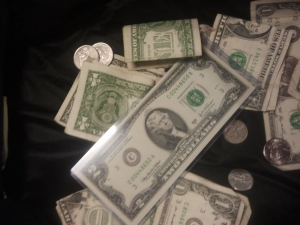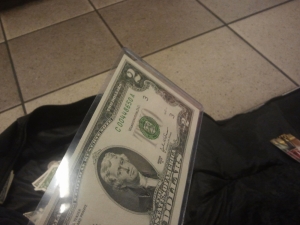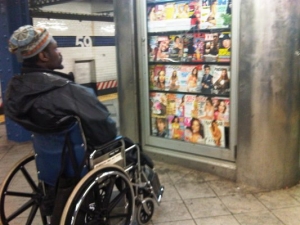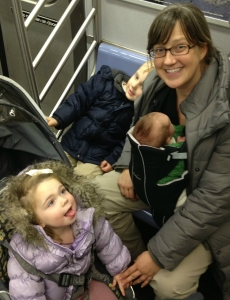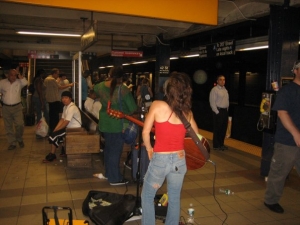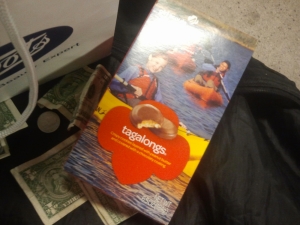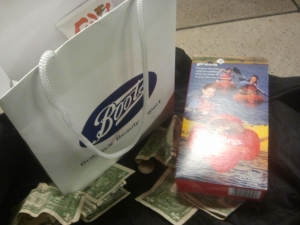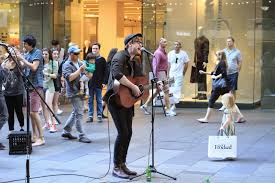http://abcnews.go.com/US/wireStory/nyc-subway-performers-policed-24951079
Subway acrobats, dancers and musicians on Tuesday decried what they said was heavy-handed policing, gathering outside City Hall to join critics of a police clampdown on minor offenses.
One activist suggested a temporary halt to subway performer arrests, which have spiked this year as officers zeroed in on minor crimes to set a tone of not tolerating lawlessness. But several performers said they just hope to arrange a way to perform without fearing arrest.
“We dance. We sing. We’re not criminals. … We shouldn’t really get locked up for showing our talent,” said Zenon “Tito” Laguerre, a 34-year-old construction worker and subway acrobat who said he was arrested last week.
The police department had no immediate response to the performers’ complaints. Mayor Bill de Blasio said last month that subway stunts may not seem like big offenses, “but breaking the law is breaking the law.”
Transit rules generally allow performing for tips in parts of subway stations, but not in trains unless artists have permits. They can use amplifiers only under certain conditions.
More than 240 subway performers have been arrested so far this year, about four times as many as during the same period last year, according to police statistics.
Some subway riders see the performers as part of the city’s anything-goes artistic environment. But others roll their eyes at hearing “it’s showtime!” on hectic commutes. Police also say subway dancing can be dangerous, though no injuries have been reported.
The rise in arrests dovetails with Police Commissioner William Bratton’s embrace of the “broken windows” theory of policing, which holds that putting up with small-time law-breaking can foster more dangerous crime. The approach has come under scrutiny since an officer used a chokehold last month in confronting a man suspected of selling untaxed cigarettes; he died after gasping “I can’t breathe!”
Bratton noted Tuesday on WNYC-FM’s “The Brian Lehrer Show” that most major crime has dropped in the city this year — although shootings have risen — and that smaller, quality-of-life offenses are offenses nonetheless.
“If people would obey the law, then they would not draw the attention of the police,” he said.
Some subway performers who comply with the rules still get arrested or told to leave, said Matthew Christian, a violinist who spearheads an advocacy group called BuskNY. Other subway performers acknowledge they’ve broken the rules but say police should focus on crime, not on what the buskers see as entertainment and entrepreneurship.
“This is New York City culture,” says Andrew “Goofy” Saunders, a 20-year-old acrobat who has stopped performing on trains amid the crackdown. “It shouldn’t be pushed away. It should be embraced.”
———
Associated Press writer Tom Hays contributed to this report.












